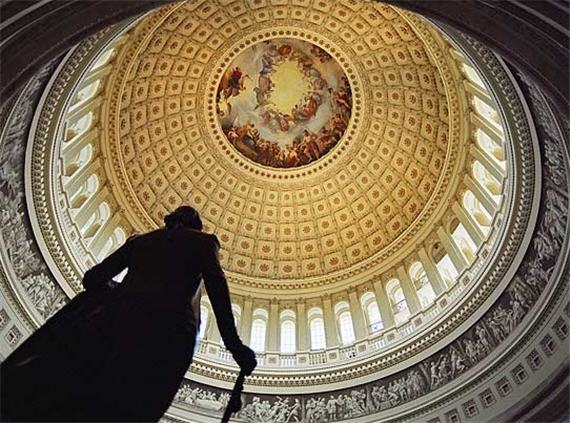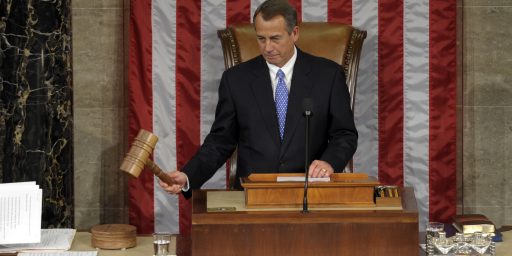CBO: Reid Plan Cuts Three Times As Much As Boehner Plan
The Congressional Budget Office has weighed in on Harry Reid’s plan to reach a debt ceiling deal and given it a far better score than they did John Boehner’s plan:
In the battle of budget scores, the Senate Democrats deficit reduction bill is the clear winner thus far over an alternative by Speaker John Boehner, which has had to be pulled back from a floor vote for retooling.
The Congressional Budget Office released a report Wednesday morning that credits the Senate bill with reducing budget deficits by about $2.2 trillion through 2012, nearly three times the $850 billion credited to the Boehner bill on Tuesday.
Part of the difference is because the Reid plan has only one round of cuts, while the Boehner plan contemplates two. However, since the second round of Boehner cuts have not been specified, the CBO didn’t score them.Additionally, the Reid and Boehner plans both use a baseline starting in January, while the CBO uses a baseline that starts in April when the final deal on the FY 2011 budget was reached.
Will this be a game changer that will give momentum to the Reid Plan? Unlikely, but stranger things have happened.







This story is worth a chuckle. I was just reading in another thread how Reid’s plan was all “smoke and mirrors” …
Well there is the phony $1 trillion in “war savings”
“Well there is the phony $1 trillion in “war savings””
I think they lifted that from the Ryan budget.
Have the war costs been “phony”?
@sam: The “war savings” needs to be explained a bit better:
– In its baseline, the CBO assumes that spending on what used to be known as the Global War on Terror will continue to increase at the rate of inflation through FY2021, the end of its latest 10-year budgetary review period, or $1,590 billion between FY2012 and FY2021.
– President Obama submitted a budget that proposed to spend $547 billion in that same 9-year period, a reduction of $1,043 billion.
– The House budget did not change that one iota.
– The Senate plan, within the margin or rounding and without specifying a per-year cut from the CBO baseline, also adopts that, to the tune of $1,044 billion.